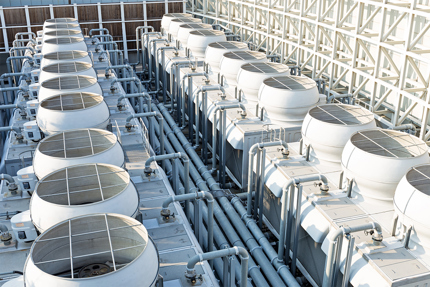Table of Contents
Air Conditioning in Belgium: An In-Depth Analysis
Introduction
Air conditioning (AC) has become an essential aspect of modern life, particularly in the face of climate change and rising temperatures. In Belgium, a country known for its temperate maritime climate, the use of air conditioning has traditionally been less common compared to warmer regions. However, as global temperatures rise, the demand for air conditioning systems in residential, commercial, and industrial settings is increasing. This article explores the evolution, types, benefits, challenges, and future of air conditioning in Belgium.

Climate Overview
Belgium’s Climate
Belgium experiences a temperate maritime climate characterized by mild winters and cool summers. The average summer temperature ranges from 20°C to 25°C (68°F to 77°F), while winter temperatures typically hover around 0°C to 5°C (32°F to 41°F). Rainfall is fairly evenly distributed throughout the year, contributing to a generally humid environment.
Changing Weather Patterns
Recent years have witnessed significant changes in Belgium’s weather patterns, with summers becoming increasingly hotter. Heatwaves, which were once rare, are now occurring more frequently. The European heatwave of 2019, for example, saw temperatures soar above 40°C (104°F) in parts of Belgium. Such changes have prompted a shift in attitudes towards air conditioning, making it a more attractive option for both comfort and health.
The Evolution of Air Conditioning in Belgium
Historical Context
Historically, air conditioning was not a common feature in Belgian homes and businesses. The mild climate meant that many people relied on natural ventilation and traditional cooling methods, such as opening windows or using fans. However, as urbanization increased and lifestyles changed, the need for reliable climate control became more apparent.
Recent Developments
In the past decade, the adoption of air conditioning systems has surged. The increase in temperature extremes and humidity levels has driven many Belgians to seek efficient cooling solutions. Moreover, advances in technology have led to the development of more energy-efficient and environmentally friendly systems, making air conditioning more appealing.

Types of Air Conditioning Systems
Central Air Conditioning
These systems consist of a central unit that distributes cooled air through ducts. Central AC is commonly used in commercial buildings and larger residential properties. It offers consistent temperature control and improved air quality, making it a popular choice for many businesses.
Split Systems
Split systems are a popular option for residential cooling. These systems consist of two main components: an indoor unit and an outdoor condenser. The indoor unit is mounted on a wall or ceiling and cools the air inside, while the outdoor unit expels heat outside. Split systems are relatively easy to install and are ideal for homes without existing ductwork.
Portable Air Conditioners
Portable air conditioners have gained popularity in Belgium due to their convenience and flexibility. While they may not be as powerful as central or split systems, they provide a practical solution for cooling individual spaces, particularly in smaller homes or apartments.
Ductless Mini-Split Systems
Ductless mini-split systems offer the benefits of central air conditioning without the need for ductwork. These systems consist of an outdoor compressor and one or more indoor units. They are energy-efficient and allow for zone cooling, enabling homeowners to control the temperature in different rooms independently. This flexibility has made them increasingly popular in Belgian households.
Benefits of Air Conditioning
Comfort
The primary benefit of air conditioning is comfort. With rising temperatures and humidity levels, AC systems provide a reliable means of maintaining a comfortable indoor environment. This is especially important for vulnerable populations, such as the elderly and those with health conditions.

Improved Air Quality
Air conditioning systems can significantly improve indoor air quality by filtering out pollutants, allergens, and dust particles. Many modern systems come equipped with advanced filtration technology that helps to remove harmful contaminants from the air, contributing to a healthier living and working environment.
Increased Productivity
In commercial settings, air conditioning can enhance productivity. Studies have shown that comfortable indoor temperatures can lead to better concentration, fewer errors, and increased employee satisfaction. As a result, businesses are more likely to invest in quality air conditioning systems to create a conducive work environment.
Protection of Assets
For businesses, particularly those in sectors like retail and hospitality, maintaining a controlled environment is crucial for protecting products and assets. Air conditioning helps to prevent heat damage to goods, ensuring that perishable items, electronics, and other sensitive materials remain in optimal condition.
Challenges of Air Conditioning
Initial Costs
One of the significant challenges associated with air conditioning is the initial investment. The cost of purchasing and installing an AC system can be substantial, particularly for central systems. While the long-term benefits often outweigh
Energy Consumption
Air conditioning systems can consume a significant amount of energy, leading to higher electricity bills. This is a growing concern, especially as more people adopt AC systems in response to climate change. In Belgium, where energy prices have been rising, finding energy-efficient solutions is critical to managing costs.
Environmental Impact
The environmental impact of air conditioning is another concern. Traditional refrigerants used in AC systems can contribute to ozone depletion and global warming
Future of Air Conditioning in Belgium
Technological Innovations
The future of air conditioning in Belgium is likely to be shaped by technological innovations.
Conclusion
Air conditioning in Belgium is evolving in response to changing climate conditions and rising temperatures. While historically less common, the increasing frequency of heatwaves and advancements in technology are driving greater adoption of air conditioning systems. As consumers become more aware of the benefits and challenges associated with AC, the focus will likely shift towards energy-efficient and environmentally friendly solutions. The future of air conditioning in Belgium promises to blend comfort with sustainability, ensuring a healthier and more enjoyable indoor environment for all.








One thought on “Exclusive AIR CONDITIONING in Belgium 2024”